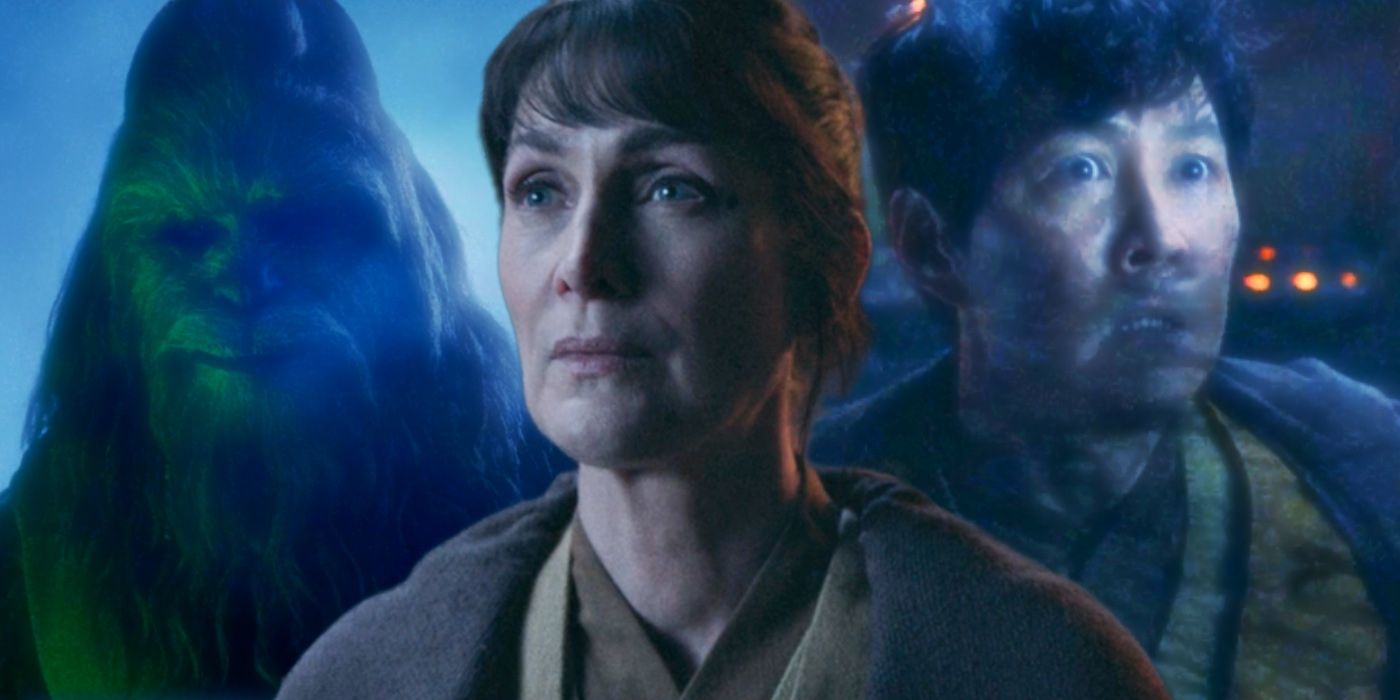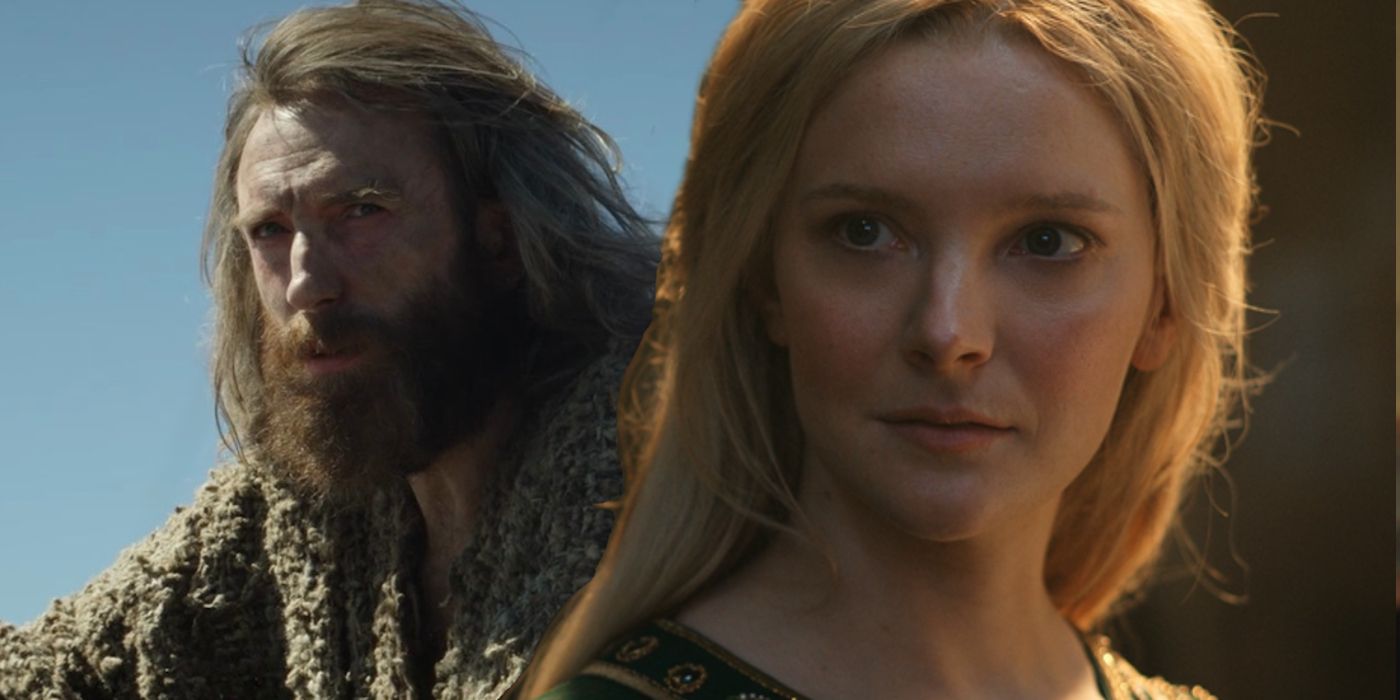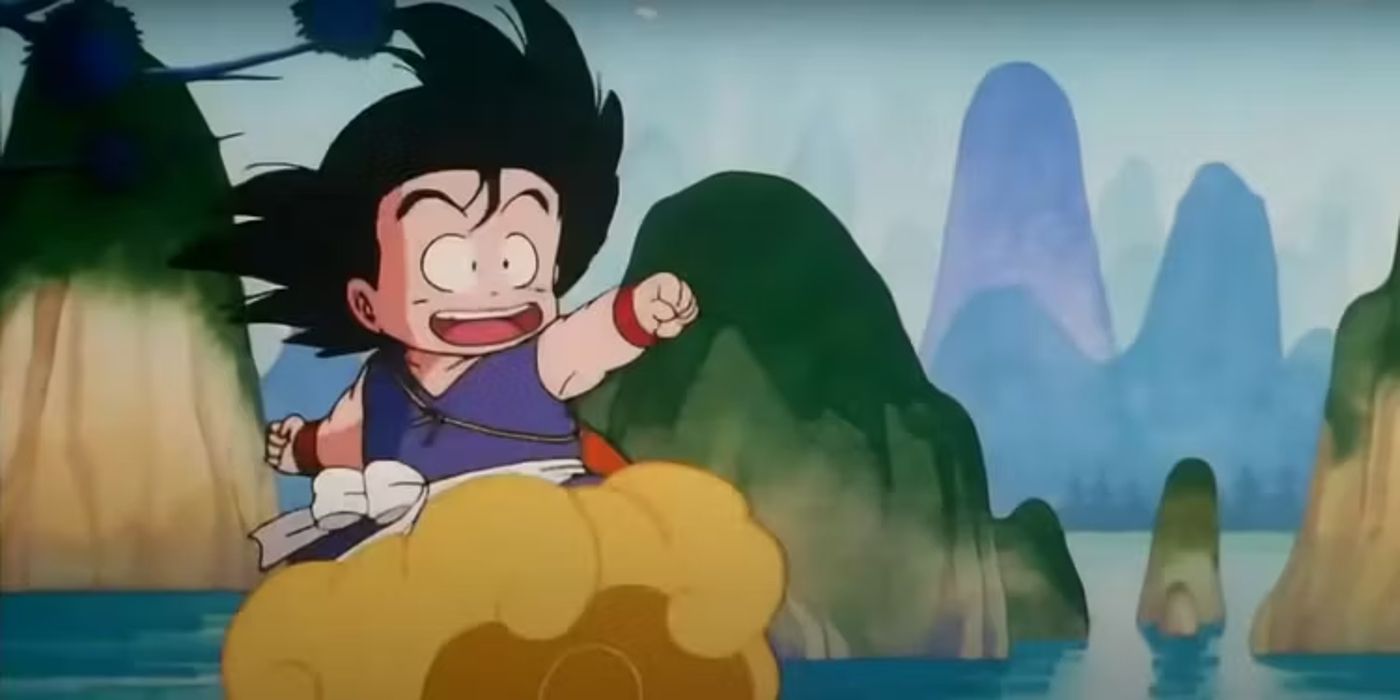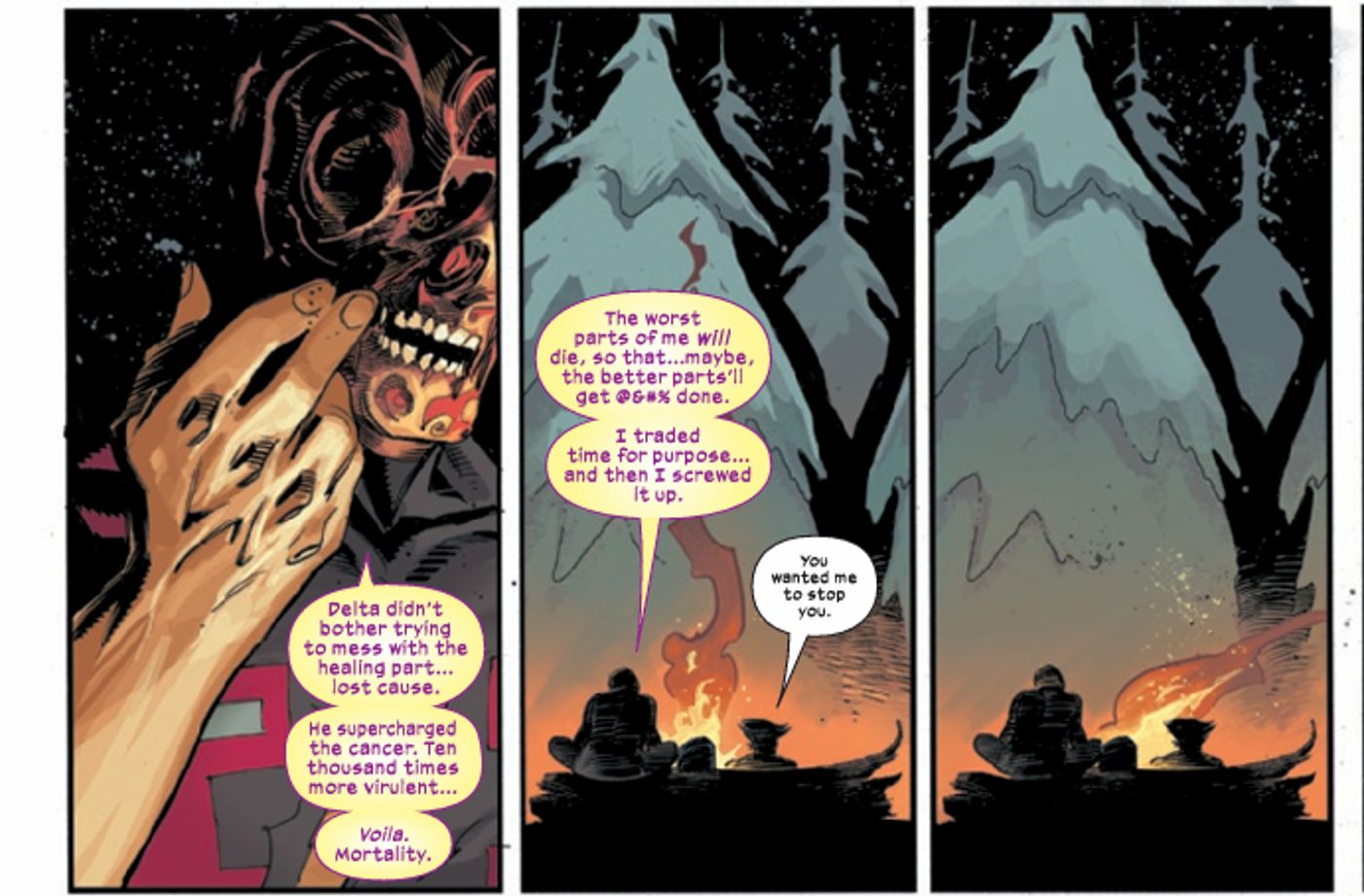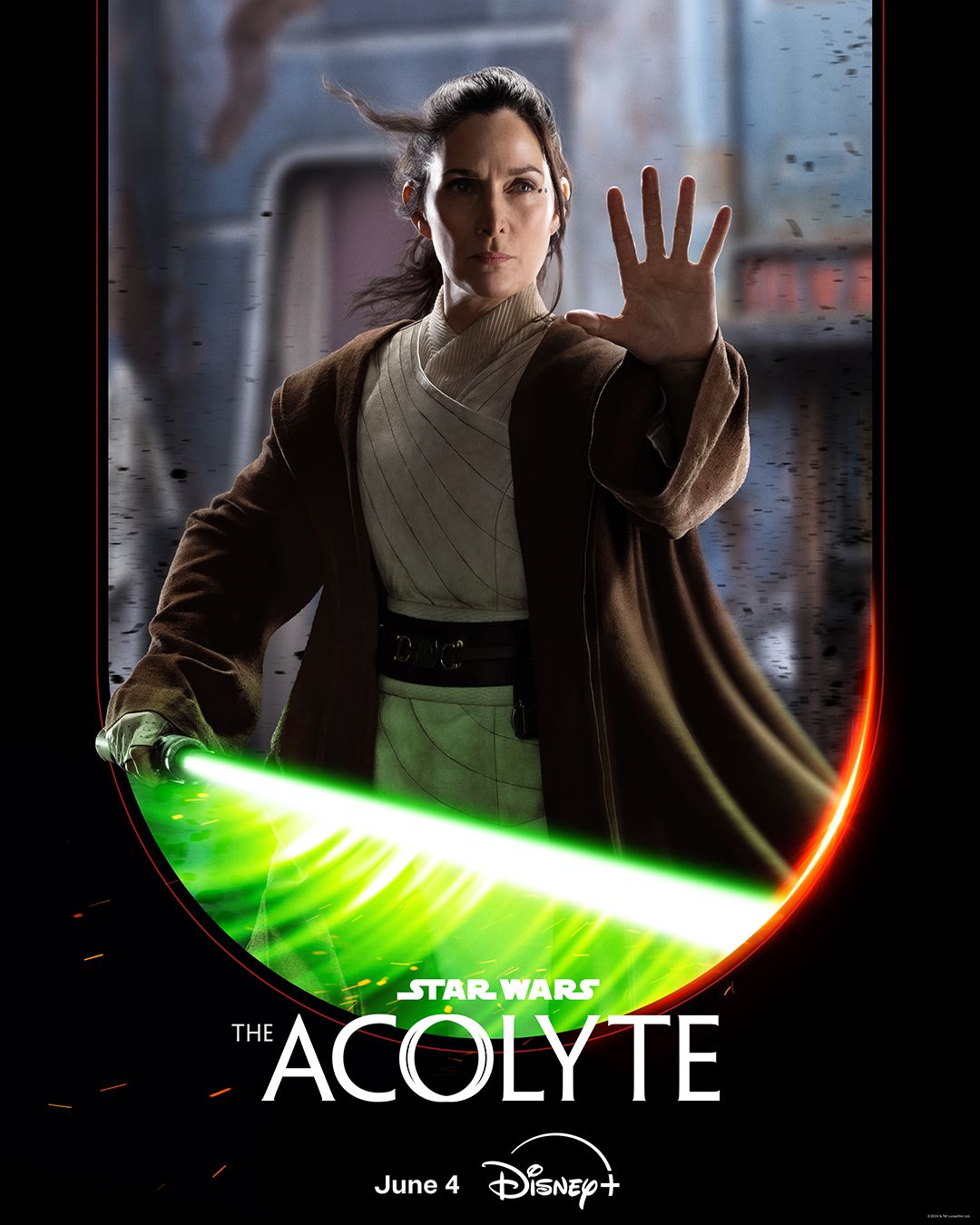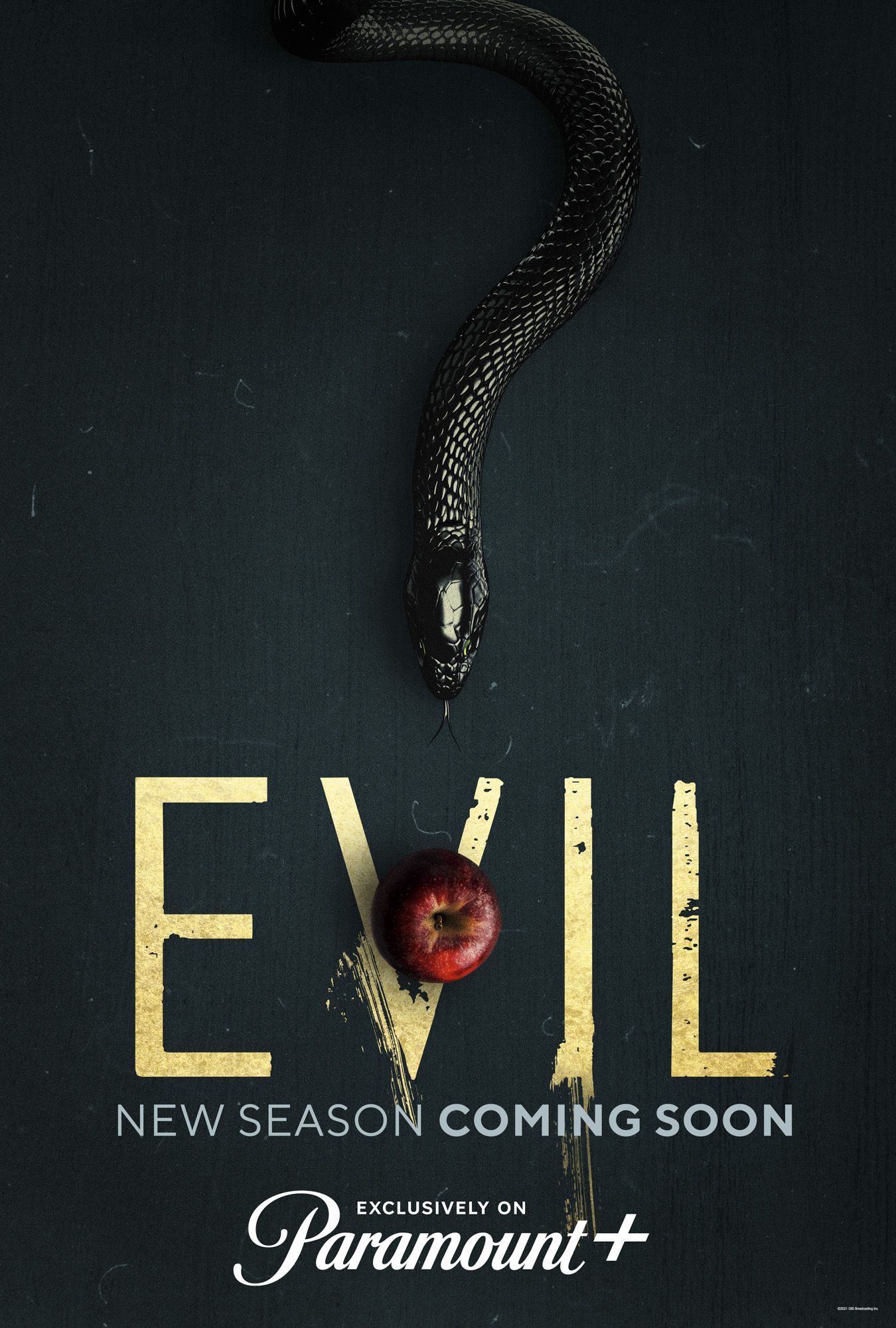While the whole world continues to practice social distancing, many viewers by have now come across the Spanish-language sci-fi film The Platform on Netflix. Having made its premiere at the 2019 Toronto International Film Festival — where it won the People’s Choice Award for Midnight Madness — the dystopian thriller directed by Galder Gaztelu-Urrutia managed to seal a worldwide deal with the streaming giant. Throughout The Platform’s 94-minute runtime, the audience witnesses the survival of the film’s protagonist, Goreng, (portrayed by Iván Massagué) as he tries to navigate “The Pit”, a large, tower-style prison in which inmates are fed via a large platform housing an opulent feast.
When he soon realizes individuals at the top are taking more than their fair share, leaving nothing for the prisoners at the bottom of the building, Goreng sets out on a mission to change the unjust system. For more options in the same social nightmare vein, here are 10 movies and TV shows you should watch after finishing The Platform.
Black Mirror
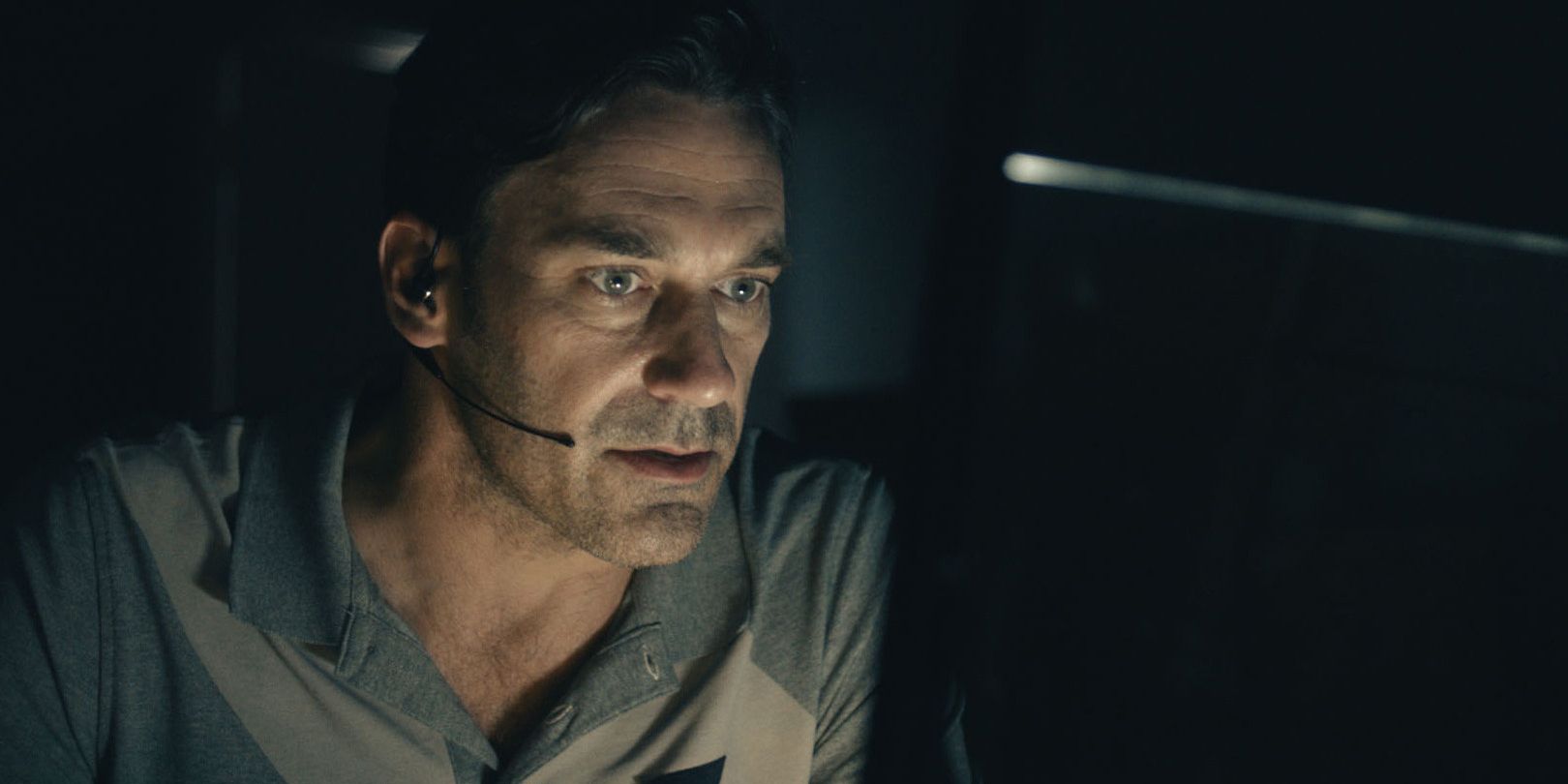
Charlie Brooker’s British darling, Black Mirror, has truly soared since being taken under the wings of Netflix. Since its debut on Channel 4 in 2011, Brooker’s searing social commentary and technophobic narratives have taken audiences to a place where the digital has wreaked havoc and warped people’s minds. Each episode’s message taps into a collective unease or anxiety and is surely hard to swallow.
This modern-day successor to The Twilight Zone has so far covered topics ranging from virtual reality, artificial intelligence, social media, and online harassment.
Parasite

It should be no surprise that Bong Joon-ho’s Academy Award-winning gem, Parasite, made the list. The meticulously-crafted black comedy parable about class follows the poor yet ingenious Kim family as their fates become intertwined with those of the much more affluent Parks.
Bong also visually separates class via vertical architecture and landscape. The Kim family lives in a sub-basement apartment and the Parks in a mansion parked up in the hills of Seoul. Without giving too much away, the audience is later introduced to more class allegories hidden away in the basement of the Parks’ home. The twists and turns architected by Bong Joon-ho make Parasite a movie that’s sure to be talked about in the decades to come.
Snowpiercer
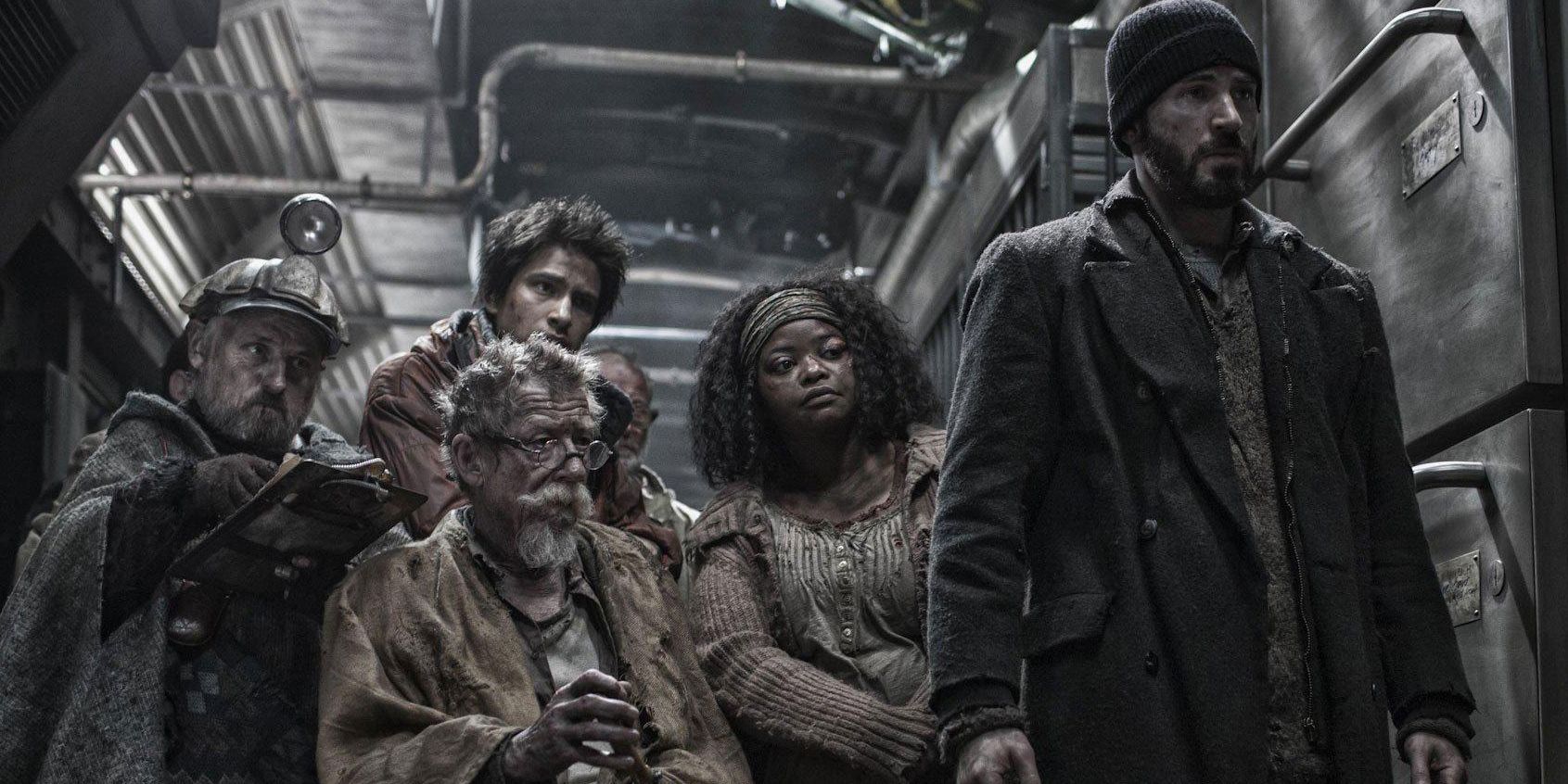
Snowpiercer marks Bong Joon-ho’s second entry on this list. Instead of looking at social warfare vertically, as seen in The Platform, the film segregates class horizontally, as the last remaining humans are housed on a moving train that circles a now frozen Earth. And just like Goreng in The Platform, the film’s lower-class protagonist (Chris Evans) leads a revolt to the front of the train to break up the divide between the upper and lower class.
The film, which is based on the critically acclaimed French sci-fi film and graphic novel, Le Transperceneige, is also receiving a TV adaptation set to air on TNT this May. Snowpiercer also touches upon the grave effects of global warming.
Utopia
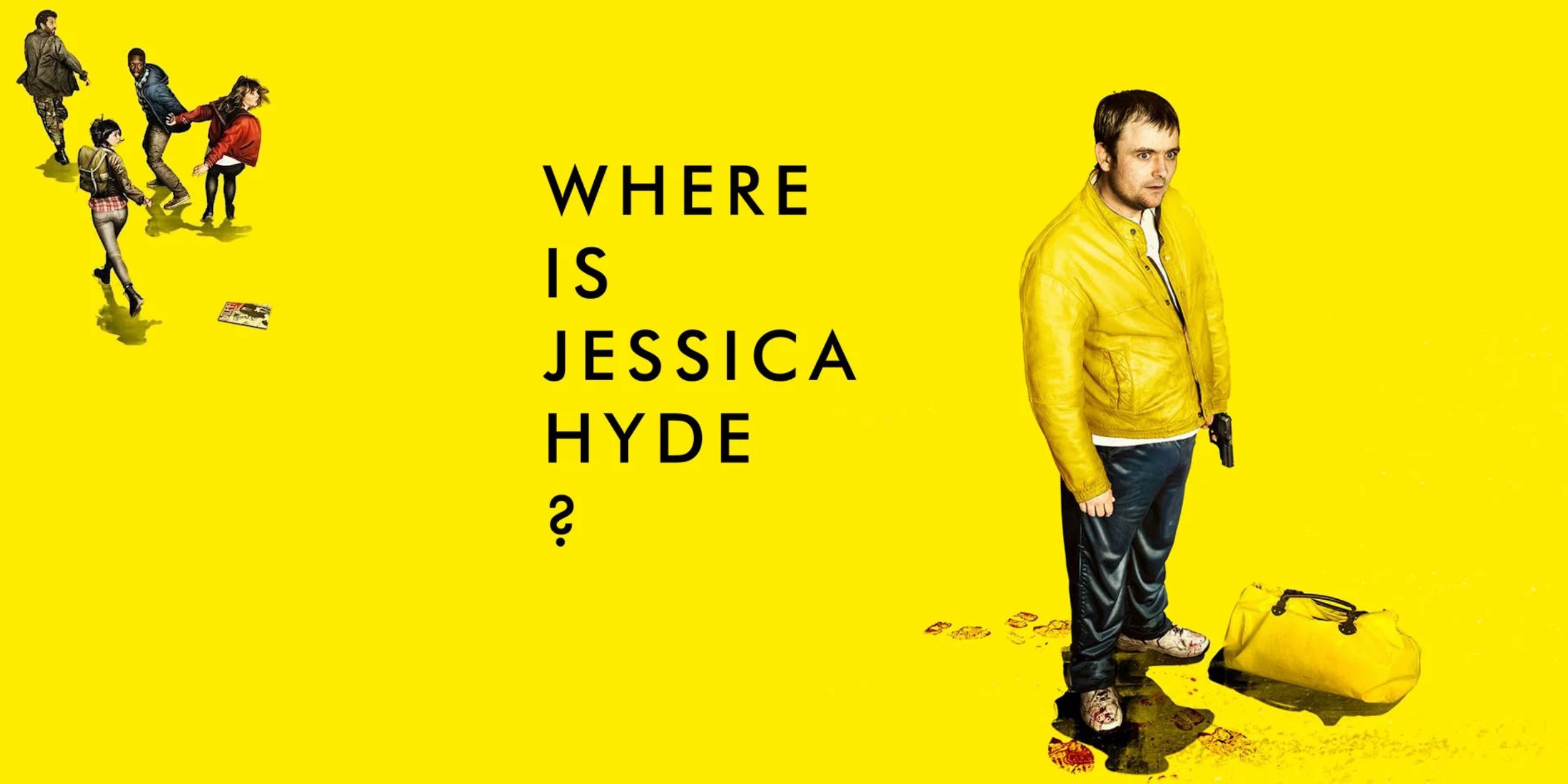
Channel 4’s British black comedy-conspiracy thriller, Utopia, plays upon a fictional graphic novel titled The Utopia Projects, which is said to have predicted many of the world’s biggest catastrophes. Five strangers then ban together after chancing upon an original manuscript and decide to go against the mysterious Network and its sinister plans to curb the world’s population. Filled with heralded cinematography and storytelling, Utopia made shockwaves when it debuted in 2013 for its nightmarish brutality.
An American remake helmed by Gone Girl writer, Gillian Flynn, is set to release later this year on Amazon and will star Sasha Lane, Rainn Wilson, John Cusack, and many others.
Us
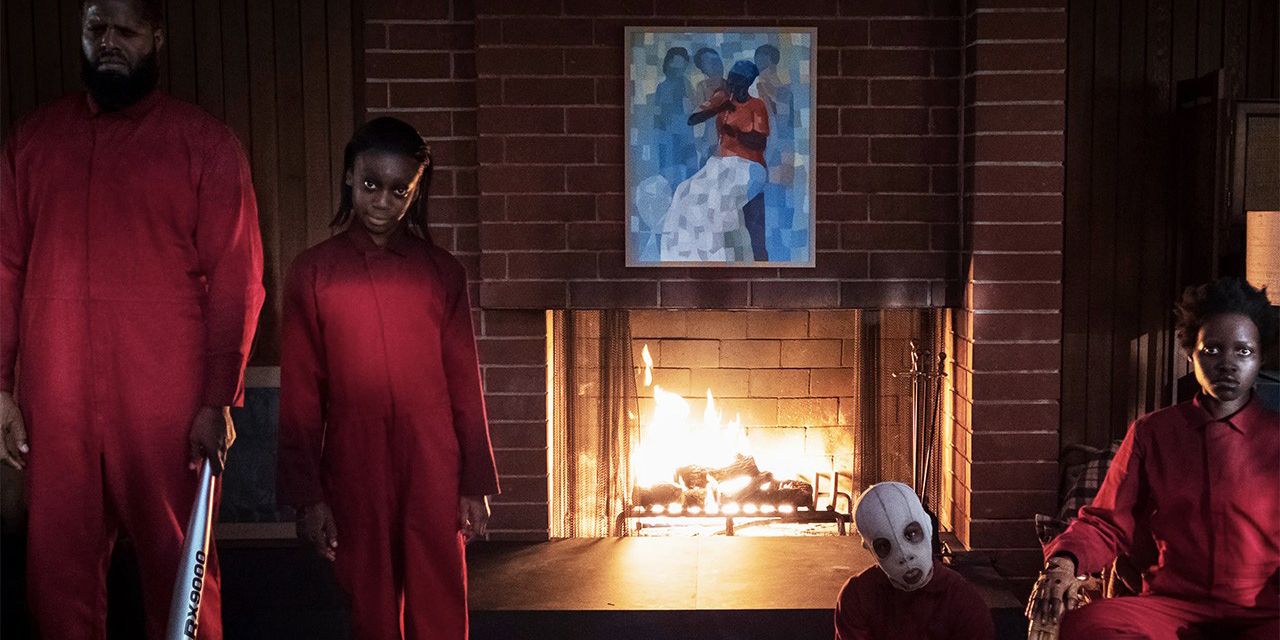
From the genius mind of Get Out’s Jordan Peele, Us is, on its surface, a tale of a young family on a vacation gone awry, but it’s also a sort of allegory for the political climate in the United States. Although seemingly taking the route of the home invasion horror subgenre, the film quickly evolves into something entirely different, seeing a mysterious family of horrific doppelgängers seeking revenge on the protagonists.
Throughout the film, Peele is able to touch upon the caste system, as well as dissecting the advantages of the upper class, and the disadvantages of those living in their shadow. Lupita Nyong’o’s stunning dual performance is just the icing on top of this delicious and terrifying cake.
High-Rise
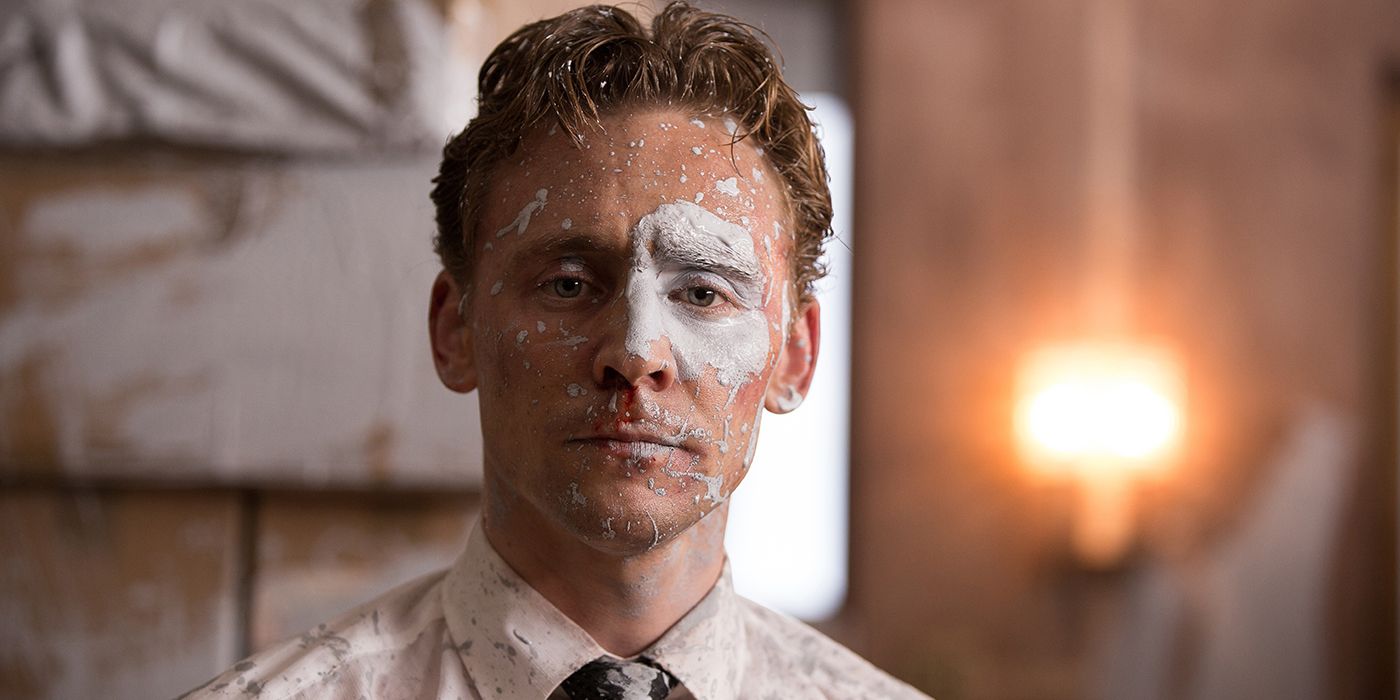
Another violent class struggle tale comes packaged in 2015’s British dystopian film, High-Rise. Directed by Ben Wheatley and based on the 1975 novel penned by J. G. Ballard, the story centers on an isolated community living in a tower block with the wealthy housed at the top, while the less fortunate are situated below.
However, over time, the residents become less interested in the outside world due to their exposure to modern conveniences and soon find their lives spinning out of control when the building’s infrastructure begins to fail. Tensions then begin to rise amongst the residents as they struggling for the latest food and try to survive, one over the other.
The Handmaid’s Tale
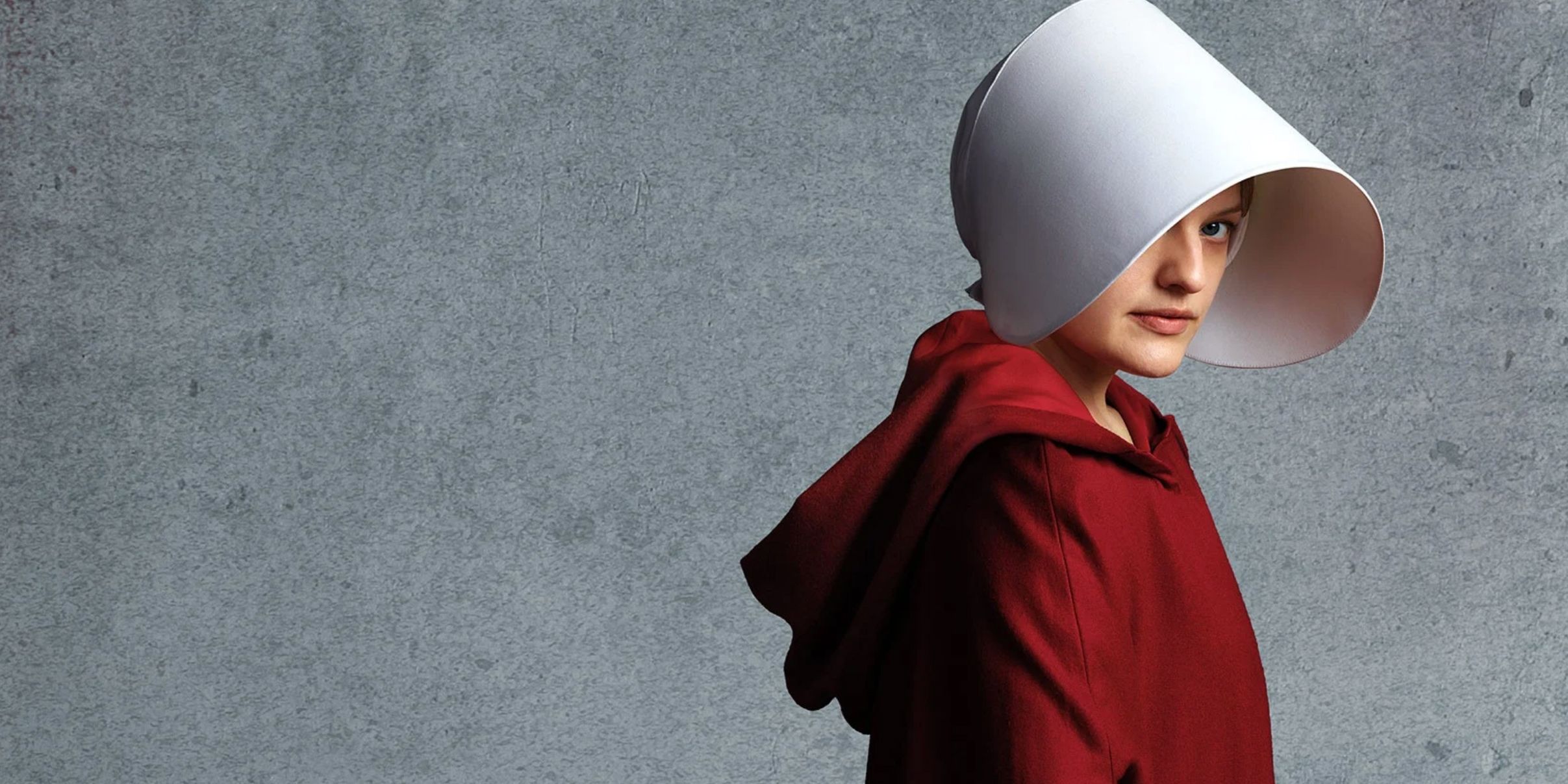
During its three-season run thus far, The Handmaid’s Tale has been giving viewers all sorts of dystopian nightmares. Based on Margaret Atwood’s literary classic of the same name, what makes The Handmaid’s Tale so horrifying is that it seems like a very possible outcome for the future of our society. The premise is set in a future America, which has become a strict fundamentalist Christian policed state and sees the wealthy exploiting the working class, especially fertile women who have been stripped of all their rights, who are now forced to become child-bearing slaves for the families of the elite.
This must-watch series follows June (Elisabeth Moss) as she fights to survive in these troubling times.
Circle
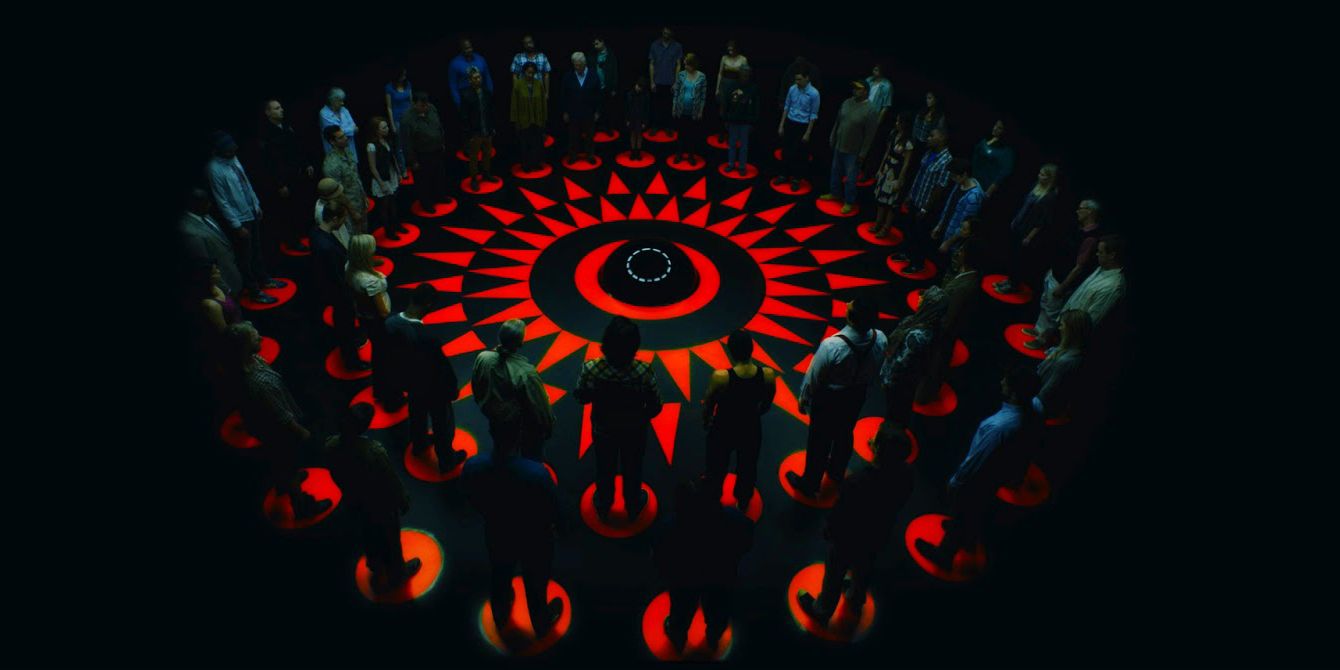
Inspired by the 1957 drama 12 Angry Men, Circle is centered on a group of 50 strangers who collectively must decide who amongst them gets to live and who dies after they mysteriously wake up in a dark, circular room.
When they realize only one person in the room will survive, decisions over who should be killed divides the group based on personal values such as profession, race, religion, sexual orientation, and life choices. Albeit it a sci-fi dystopian, Circle manages to show humanity at its worse and acts as a metaphor for today’s current social climate.
Westworld
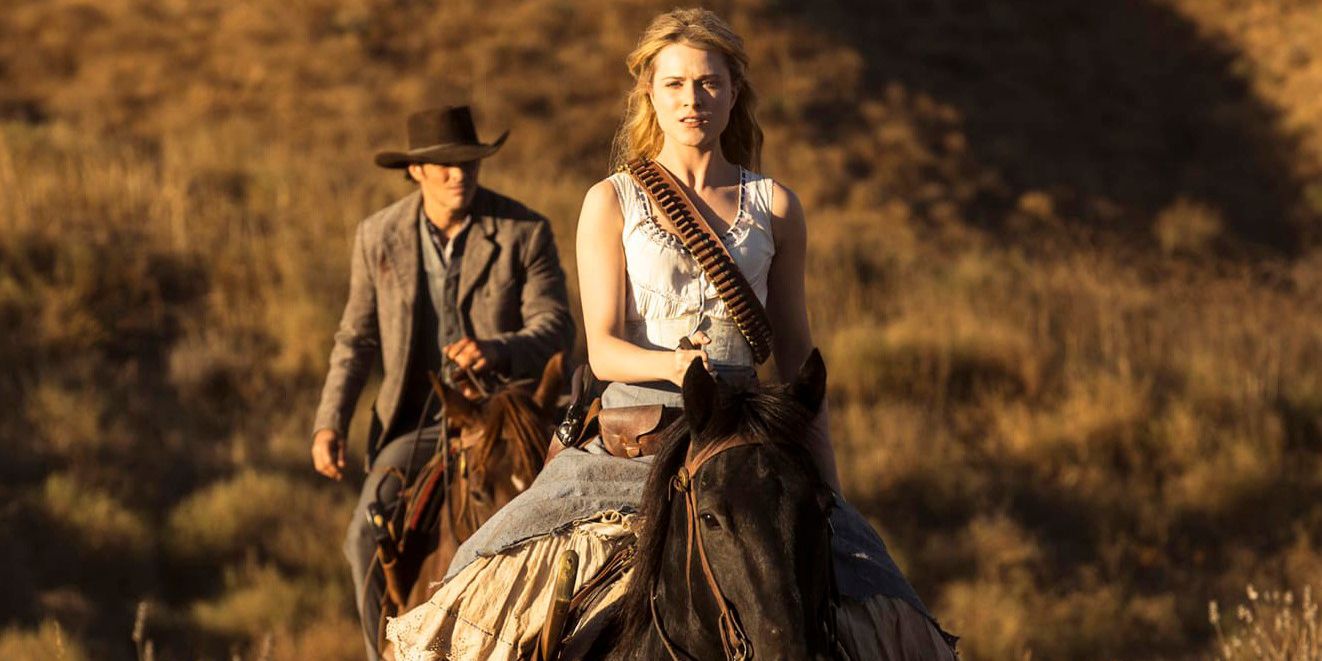
Set in a technologically-advanced, Western-themed amusement park, where visitors are free to indulge in their deepest, darkest impulses, viewers quickly learn that the real attraction to Westworld isn’t the fantasy of visiting the Old West but having the freedom to act out the most monstrous of urges.
The audience watches as these robots, including the amazing performance of Evan Rachel Wood as Dolores, reach the singularity— the hypothetical point when artificial intelligence surpasses human intelligence — we begin to question what really makes us human. Based on the 1973 feature film from writer-director Michael Crichton, Westworld’s third season is currently airing on HBO.
District 9
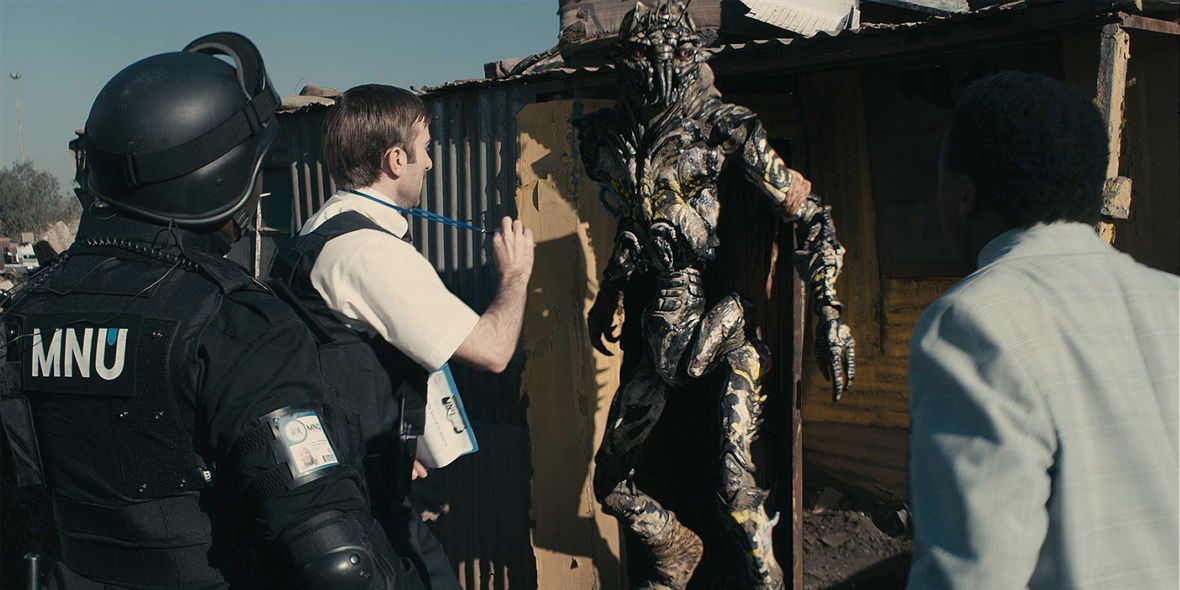
Bordering more on sci-fi than a dystopian film, Neill Blomkamp’s District 9 — based off his 2006 short film, Alive in Joburg — is a definite eye-opener on the topic of social inequality, considering that it acts as a critique of the South African apartheid, honing in on the country’s history of racial segregation. Instead of humans, aliens nicknamed by the locals as “prawns” have landed on Earth and are forced to live in unsanitary, militarized ghettos, giving us an insight into our own racial divides found in society today.
Years later, during a relocation, one of the creatures tries to escape with his son to return home. In order to do this, he must convince a caseworker to believe his story and understand the troubles his species is in.
